
Ibiza: The Island of Sun, Sea, and Sensation
Ibiza, a jewel in the Mediterranean Sea, is famed for its vibrant nightlife, stunning beaches, and rich cultural history. This enchanting island in Spain offers a perfect blend of relaxation and excitement, making it a must-visit destination for travelers from around the globe. The island's beautiful coastline is dotted with pristine beaches, each with its own unique charm. From the bustling shores of Playa d'en Bossa to the tranquil sands of Cala Salada, there is a beach for every mood and occasion. Sunbathing, swimming, and water sports are popular activities, while beachside bars serve refreshing drinks and delicious local cuisine. Beyond the beaches, Ibiza's historic old town, Dalt Vila, is a UNESCO World Heritage site. Wander through its narrow cobbled streets, visit the ancient fortress, and explore charming shops and cafes. The island also boasts a lush countryside, perfect for hiking and discovering hidden gems. Ibiza's nightlife is legendary, with world-renowned clubs and DJs that attract party-goers from all over the world. However, the island also offers quieter, more intimate venues for those seeking a more relaxed evening. Whether you're dancing the night away or enjoying a peaceful sunset, Ibiza has something for everyone.
Local tips in Ibiza
- Visit in the shoulder seasons (May-June or September-October) for fewer crowds and mild weather.
- Rent a scooter or car to explore hidden beaches and inland villages at your own pace.
- Explore the local markets for unique souvenirs and fresh produce.
- Make reservations in advance for popular beach clubs and restaurants, especially during peak season.
- Don't miss the sunset at Café del Mar in San Antonio for a truly iconic Ibiza experience.
Ibiza: The Island of Sun, Sea, and Sensation
Ibiza, a jewel in the Mediterranean Sea, is famed for its vibrant nightlife, stunning beaches, and rich cultural history. This enchanting island in Spain offers a perfect blend of relaxation and excitement, making it a must-visit destination for travelers from around the globe. The island's beautiful coastline is dotted with pristine beaches, each with its own unique charm. From the bustling shores of Playa d'en Bossa to the tranquil sands of Cala Salada, there is a beach for every mood and occasion. Sunbathing, swimming, and water sports are popular activities, while beachside bars serve refreshing drinks and delicious local cuisine. Beyond the beaches, Ibiza's historic old town, Dalt Vila, is a UNESCO World Heritage site. Wander through its narrow cobbled streets, visit the ancient fortress, and explore charming shops and cafes. The island also boasts a lush countryside, perfect for hiking and discovering hidden gems. Ibiza's nightlife is legendary, with world-renowned clubs and DJs that attract party-goers from all over the world. However, the island also offers quieter, more intimate venues for those seeking a more relaxed evening. Whether you're dancing the night away or enjoying a peaceful sunset, Ibiza has something for everyone.
When is the best time to go to Ibiza?
Iconic landmarks you can’t miss
Castle of Ibiza
Discover the enchanting Castle of Ibiza, a UNESCO World Heritage site, offering stunning views, rich history, and cultural treasures in the heart of the Mediterranean.
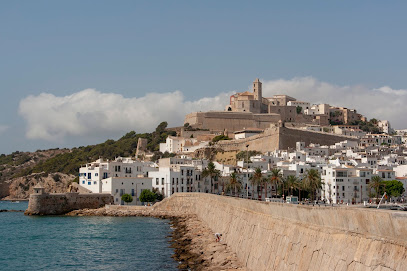
Puig des Molins, Ibiza
Discover the ancient Phoenician heritage at Puig des Molins, Ibiza's remarkable history museum and UNESCO World Heritage site.
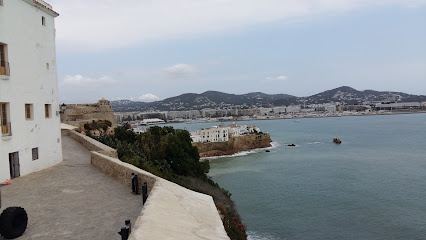
Baluarte de San Jaime
Explore the historic Baluarte de San Jaime in Ibiza, a stunning bastion offering breathtaking views and rich cultural experiences.
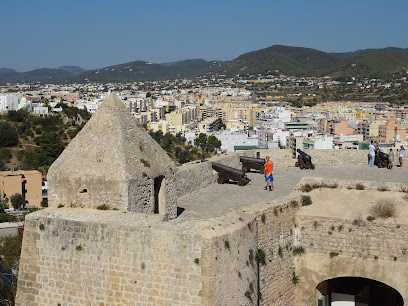
Unmissable attractions to see
Café del Mar
Experience breathtaking sunsets and chill vibes at Café del Mar in Sant Antoni de Portmany, Ibiza's iconic bar for relaxation and enjoyment.
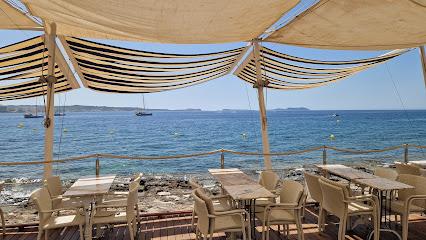
Sunset Ashram
Experience the exquisite flavors of Mediterranean cuisine at Sunset Ashram, where stunning sunset views enhance your dining experience in the Balearic Islands.
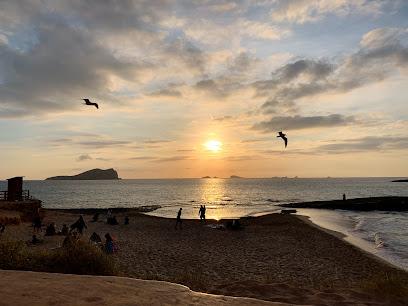
Puig des Molins, Ibiza
Explore the rich history of Ibiza at Puig des Molins, a UNESCO World Heritage site featuring ancient burial grounds and a captivating museum.
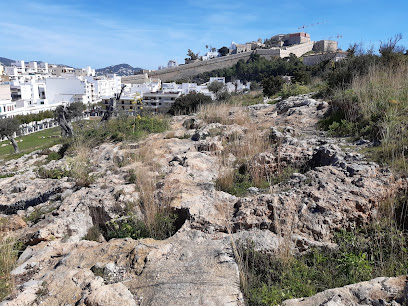
Plaça de la Reina Sofia
Experience the vibrant atmosphere and cultural charm of Plaça de la Reina Sofia, the heart of Ibiza's rich heritage.
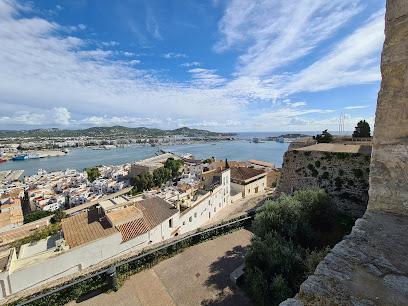
Cala Escondida
Discover the serene beauty of Cala Escondida, a hidden beach gem in the Balearic Islands, perfect for relaxation and exploration amidst nature.
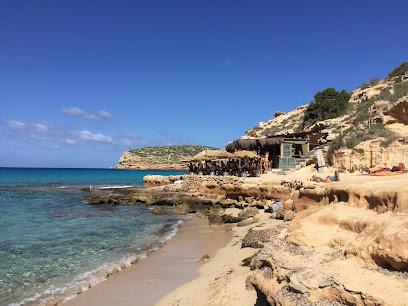
Punta Moscarter lighthouse
Explore the stunning Punta Moscarter Lighthouse, where breathtaking views meet rich history in the heart of Ibiza's beautiful landscapes.
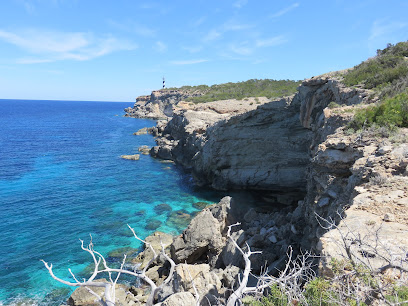
Cala Codolar
Explore the serene beauty of Cala Codolar, a hidden gem in the Balearic Islands, perfect for relaxation and breathtaking sunsets.

Es Pujols
Experience the enchanting beauty and vibrant culture of Es Pujols, a stunning beach destination in the heart of the Balearic Islands.
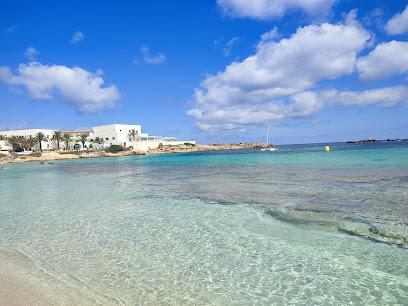
Torre des Molar
Experience the rich history and stunning views at Torre des Molar, a captivating landmark in Sant Joan de Labritja, Balearic Islands.
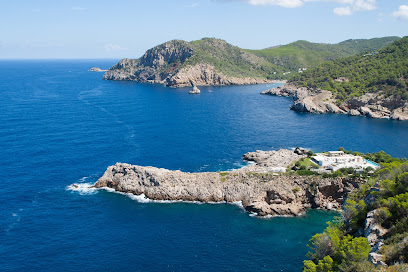
Parque de S'Illa
Explore the tranquil beauty of Parque de S'Illa, Ibiza's lush oasis perfect for leisurely strolls, family outings, and a peaceful escape from the island's nightlife.
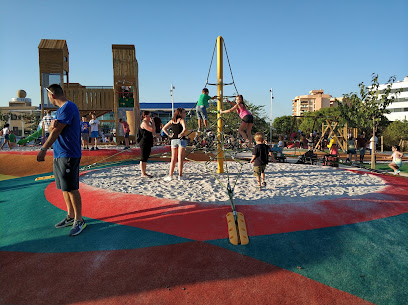
Slingshot Ibiza
Discover the thrill of Slingshot Ibiza, an exhilarating amusement park attraction perfect for adventurous tourists seeking unforgettable experiences.
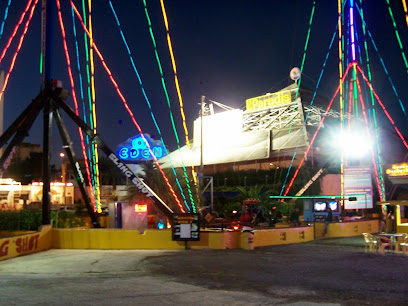
Far de sa punta Grossa
Experience the breathtaking views and rich history at Far de sa Punta Grossa, a stunning lighthouse in the heart of the Balearic Islands.
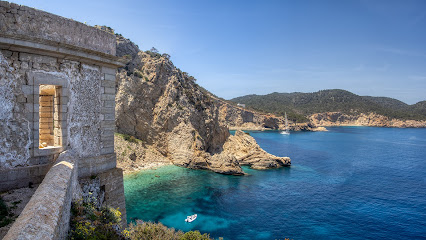
Cala Blanca
Experience the breathtaking beauty and serene atmosphere of Cala Blanca, a stunning coastal paradise in Ibiza's Balearic Islands, perfect for outdoor adventures.
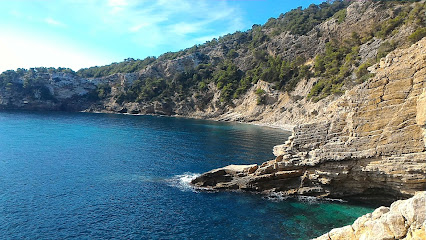
Es Caló de s'Alga
Experience the tranquility of Es Caló de s'Alga in Santa Eulària des Riu, the perfect coastal escape in the beautiful Balearic Islands.
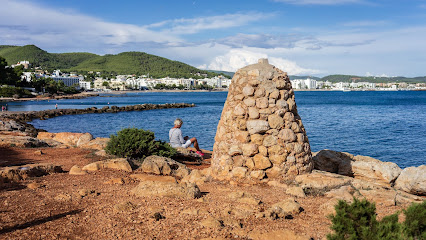
Casa Broner Museum
Explore the captivating Casa Broner Museum, a unique artistic haven in Ibiza showcasing the life and works of the renowned artist Erwin Broner.
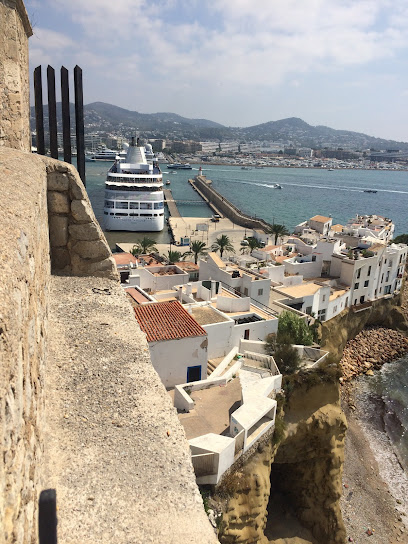
Essential places to dine
The Boat House
Discover the exquisite flavors at The Boat House in Cala de Sant Vicent, where Mediterranean cuisine meets vibrant cocktails in a stunning setting.
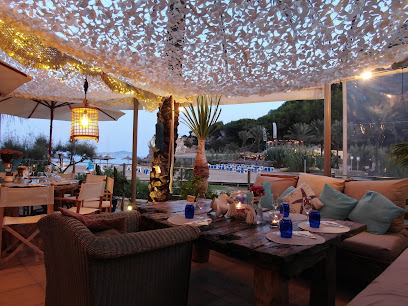
La Brasa d'Eivissa
Discover authentic Mediterranean cuisine at La Brasa d'Eivissa, where every dish is a celebration of Spanish flavors amidst Ibiza's enchanting atmosphere.
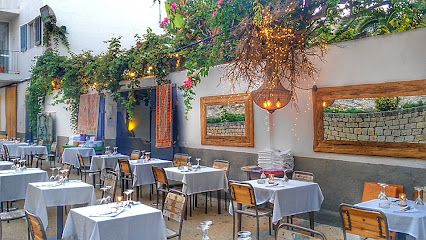
Calma
Discover Calma: A Mediterranean gem in Ibiza offering fresh cuisine and stunning marina views for an unforgettable dining experience.
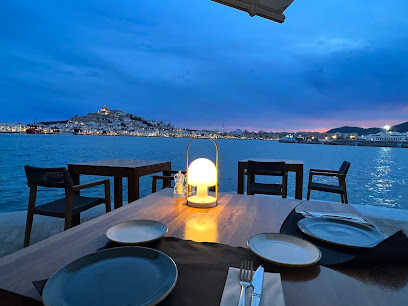
Ohana Ibiza Restaurante
Experience authentic Mediterranean cuisine at Ohana Ibiza Restaurante - where every dish is a celebration of flavor in the heart of Ibiza.
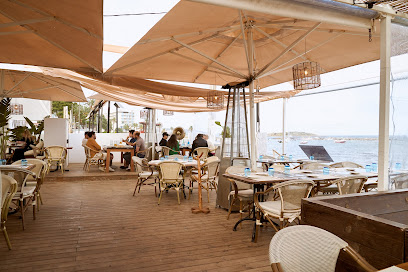
El Zaguán
Experience authentic Spanish cuisine at El Zaguán, where every bite transports you to the heart of Ibiza's culinary landscape.
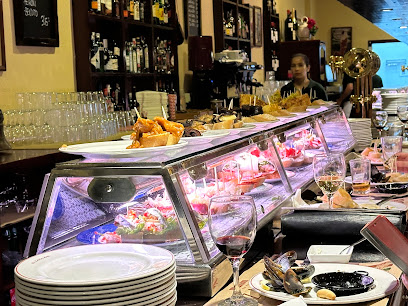
Tapas Ibiza
Experience the best tapas in Sant Antoni de Portmany at Tapas Ibiza—where Mediterranean flavors meet vibrant nightlife.
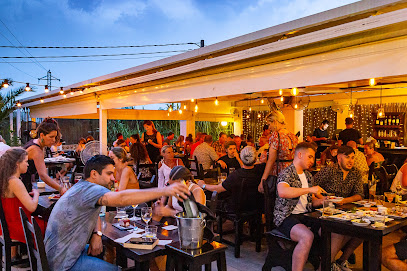
Sa Vida
Discover Sa Vida in Ibiza: A delightful tapas restaurant offering Mediterranean flavors and an extensive wine selection for every palate.
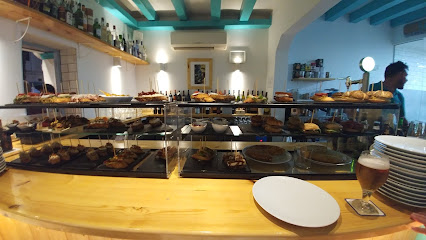
Es Rebost de Can Prats
Discover authentic Mediterranean flavors at Es Rebost de Can Prats - where Spanish culinary traditions meet modern dining in Sant Antoni de Portmany.
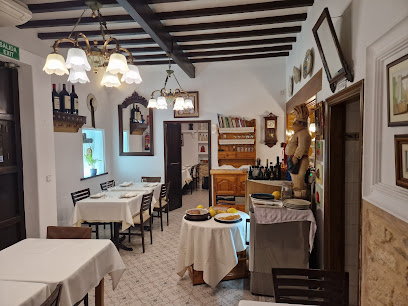
Aubergine Ibiza
Discover culinary bliss at Aubergine Ibiza - where Mediterranean flavors meet stunning landscapes in a serene dining oasis.
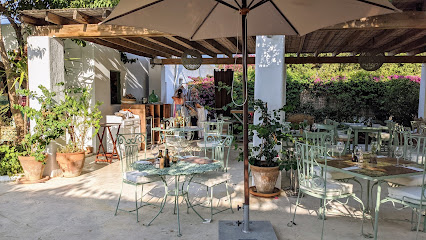
Es Mercat
Discover Es Mercat in Ibiza – where Mediterranean flavors meet modern dining in a vibrant atmosphere.
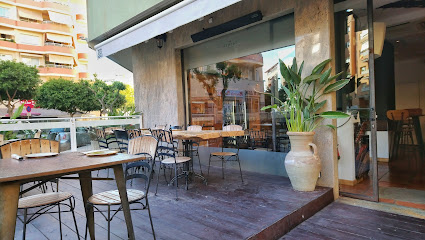
CasaPiedra
Discover CasaPiedra in Cala Llonga: A fusion restaurant blending Mediterranean, sushi, and Vietnamese cuisines for an unforgettable dining experience.
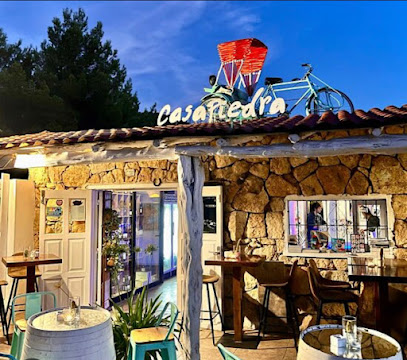
FEEL IBIZA Restaurant
Discover the vibrant taste of Italy blended with local flavors at FEEL IBIZA Restaurant in Es Figueral's scenic surroundings.
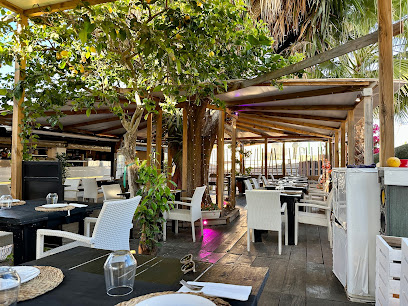
Mitch's Bar Ibiza
Experience authentic Italian cuisine at Mitch's Bar Ibiza—where delicious food meets lively island vibes in a cozy atmosphere.
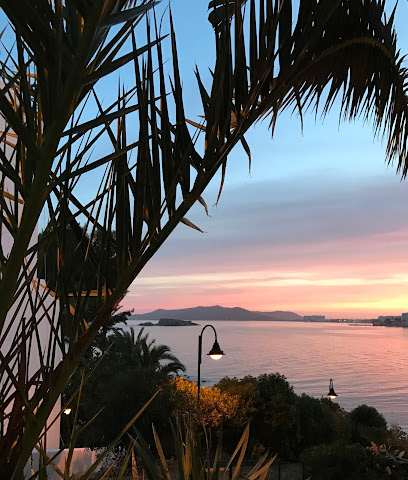
Kasbah Ibiza Sunset
Experience exquisite Mediterranean tapas and breathtaking sunsets at Kasbah Ibiza Sunset in Sant Antoni de Portmany.
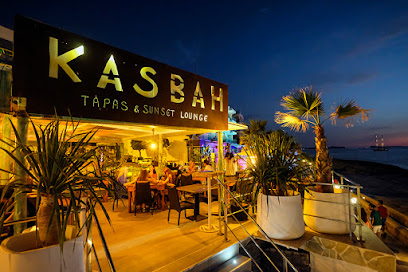
Los Pasajeros
Experience authentic Mediterranean cuisine at Los Pasajeros in Ibiza – where every dish tells a story.
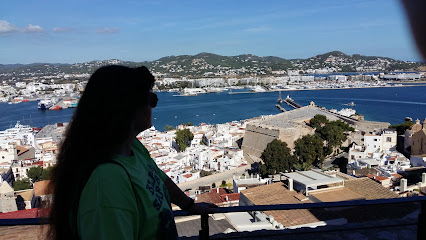
Markets, malls and hidden boutiques
SLUIZ.
Explore SLUIZ in Santa Gertrudis, a vibrant store filled with unique treasures, quirky decor, and a whimsical shopping experience.
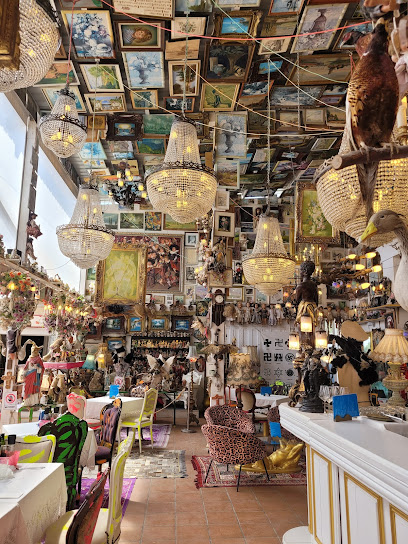
hiper hogar ibiza
Explore an array of shops at Hiper Hogar Ibiza, your ultimate shopping destination in the heart of the Balearic Islands.
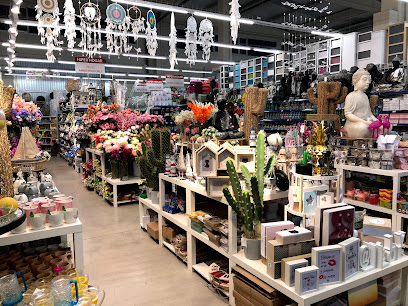
Centro Comercial Art
Explore Centro Comercial Art for unique gifts and clothing in the heart of Santa Eulària des Riu, a vibrant shopping destination in Ibiza.

ART Centre Comercial
Explore the ART Centre Comercial in Santa Eulalia del Río for a unique blend of local and international fashion in a vibrant shopping atmosphere.

SAL de IBIZA The Store - Santa Eulalia
Explore SAL de IBIZA The Store in Santa Eulalia for the finest beachwear, local delicacies, and unique fashion pieces that capture the spirit of Ibiza.
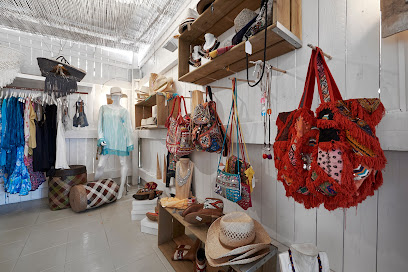
World Family Ibiza
Explore the vibrant fashion of World Family Ibiza, where unique styles and local flair meet in a cozy shopping experience.
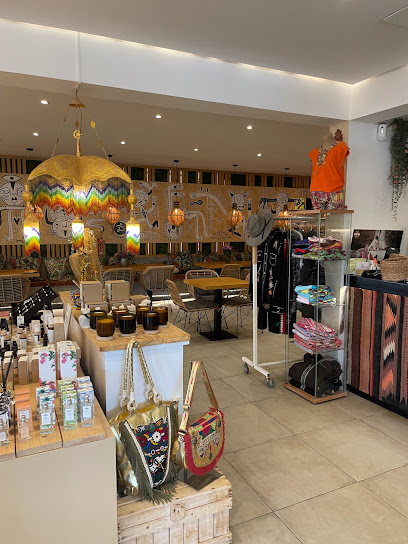
DC10 IBIZA Official Shop
Discover unique fashion accessories at DC10 Ibiza Official Shop, a vibrant hub that embodies the island's eclectic culture and style.
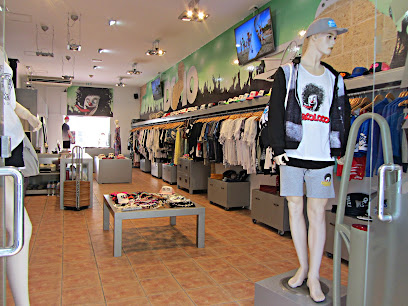
La Galeria Elefante Ibiza
Explore La Galeria Elefante in Ibiza for unique gifts, clothing, and furniture, all reflecting the island's vibrant spirit and charm.
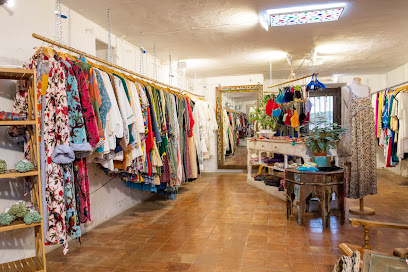
THE BUBBLE SHOP
Discover the enchanting aromas and unique products at The Bubble Shop in Ibiza, your go-to novelty store for wellness and beauty.
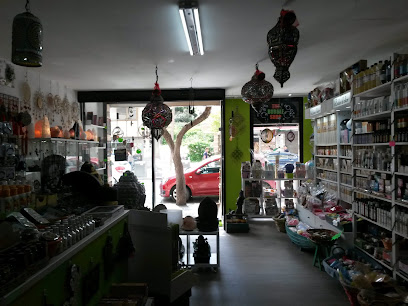
Gatzara Ibiza Moda Shop
Discover the latest fashion trends at Gatzara Ibiza, where stylish shopping meets the vibrant culture of the Balearic Islands.
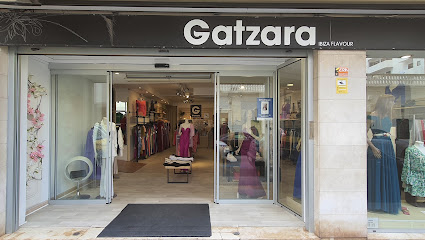
Beatrice San Francisco - Tienda BSF Ibiza
Discover unique beachwear, formal attire, and exquisite accessories at Beatrice San Francisco, the ultimate shopping destination in Ibiza.
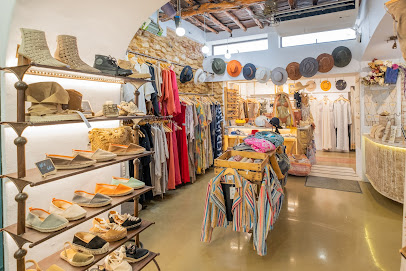
Angela
Discover Angela, Ibiza's chic clothing store offering unique apparel that embodies the island's vibrant spirit and fashion-forward lifestyle.

BLUE IBIZA Boutique
Explore the best of Ibiza's fashion scene at BLUE IBIZA Boutique, where elegance meets island style with a curated collection of accessories.
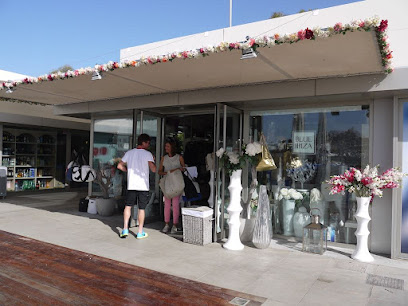
GUCCI Ibiza Store
Experience the exquisite luxury of GUCCI Ibiza, where high-end fashion meets the vibrant spirit of the island.
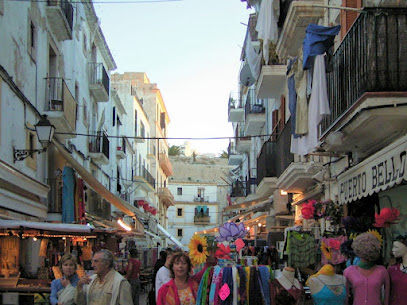
Holala Ibiza
Explore Holala Ibiza, a vintage clothing store bursting with unique fashion finds and a vibrant atmosphere in the heart of Ibiza.
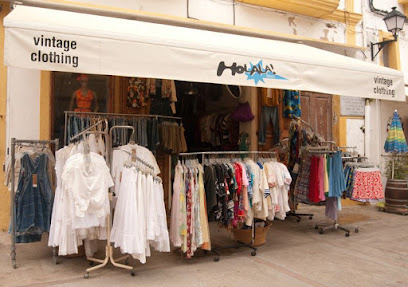
Essential bars & hidden hideouts
Ibiza Rocks Bar
Discover the vibrant Ibiza Rocks Bar, where delicious food meets electrifying nightlife in the heart of Sant Antoni de Portmany.
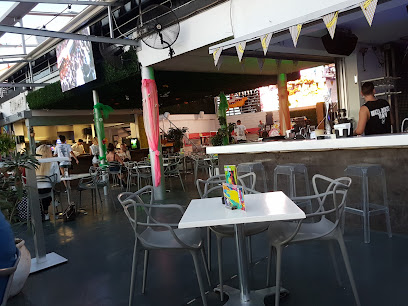
S'Escalinata
Experience the vibrant nightlife of Ibiza at S'Escalinata, a must-visit cocktail bar offering delightful drinks and local cuisine.
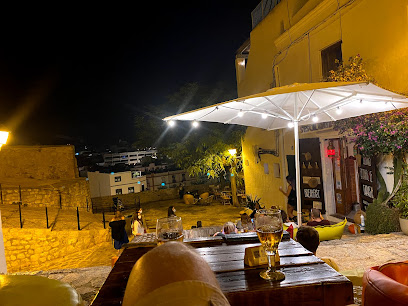
Murphy's Ibiza
Discover the electrifying nightlife at Murphy's Ibiza, the ultimate cocktail bar in Sant Josep de sa Talaia, where unforgettable memories await.
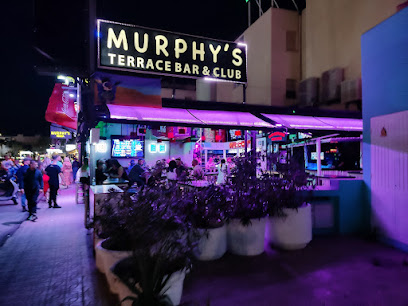
Bianca & Friends
Experience the vibrant nightlife of Ibiza at Bianca & Friends, where great drinks and stunning views create unforgettable memories.
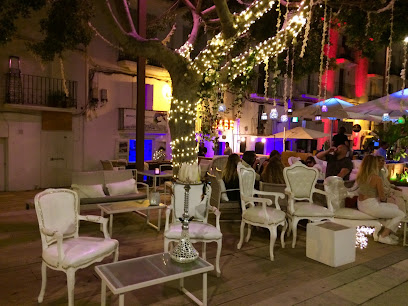
The Rock Bar Ibiza
Discover the vibrant nightlife of Ibiza at The Rock Bar, where exquisite cocktails, delicious tapas, and lively entertainment await you.
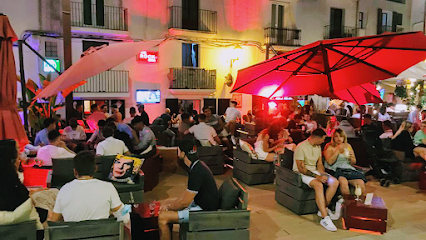
Dunes Ibiza
Experience the vibrant beach life at Dunes Ibiza, where delicious cocktails meet stunning ocean views on Playa d'en Bossa.
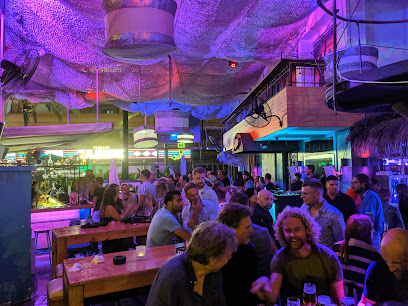
Tirapallà
Experience the vibrant nightlife at Tirapallà, Ibiza's premier cocktail bar, where exquisite drinks and lively atmosphere await.
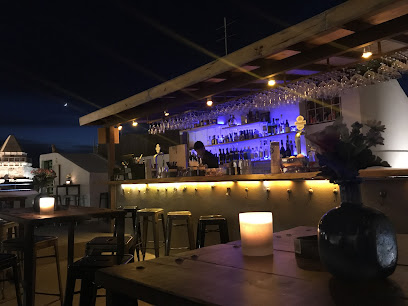
NUMBER 5 IBIZA-Cocktail Bar -Center of Ibiza
Discover the pulse of Ibiza's nightlife at NUMBER 5 IBIZA, where creative cocktails and vibrant atmosphere await your arrival.
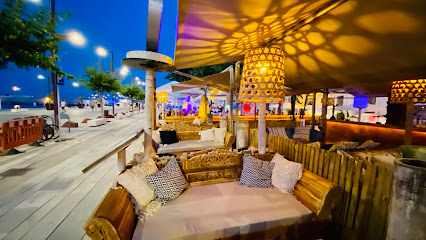
Bamboo
Discover the vibrant atmosphere and exquisite cocktails at Bamboo, Sant Antoni de Portmany's premier cocktail bar for relaxation and nightlife.
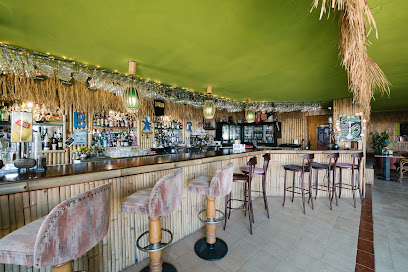
De Miedo Rock Bar
Discover the vibrant nightlife of Ibiza at De Miedo Rock Bar, a lively beer hall and pub perfect for unforgettable evenings filled with music and fun.
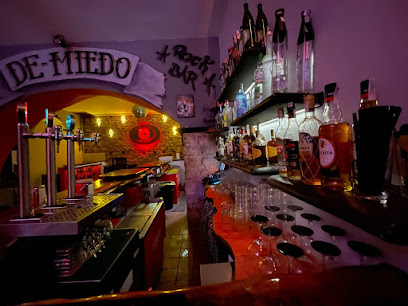
Cocos Bar
Cocos Bar: A lively pub in Sant Josep de sa Talaia, perfect for cocktails, music, and vibrant nightlife in the heart of the Balearic Islands.
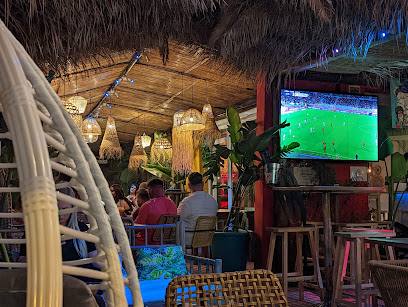
Jacks Pub Eivissa
Discover the vibrant atmosphere of Jack's Pub in Eivissa, where Irish charm meets Ibiza's nightlife in a cozy setting.
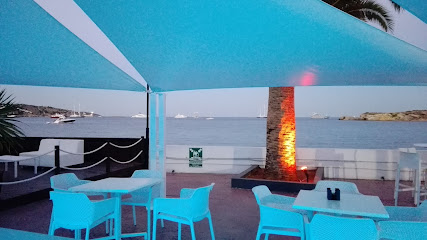
Zoo Bar
Discover the lively ambiance and signature cocktails at Zoo Bar, a must-visit nightlife hotspot in Ibiza's vibrant party scene.
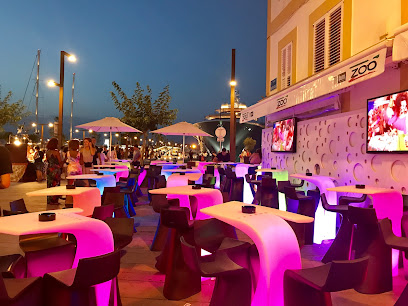
Bulín Cocktail Club
Discover the vibrant nightlife at Bulín Cocktail Club, Ibiza's premier destination for handcrafted cocktails and unforgettable experiences.

Bar 1805 Ibiza
Discover Bar 1805 Ibiza, where exquisite French cuisine meets vibrant nightlife in a chic, welcoming atmosphere.
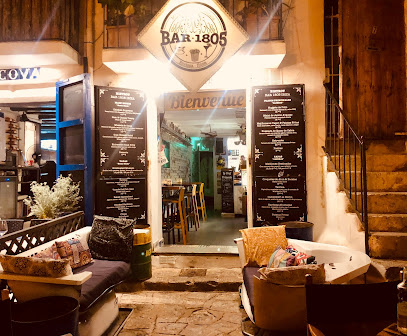
Local Phrases about Ibiza
-
- HelloHola
[oh-lah] - GoodbyeAdiós
[ah-dyohs] - YesSí
[see] - NoNo
[noh] - Please/You're welcomePor favor/De nada
[por fah-bohr/deh nah-dah] - Thank youGracias
[grah-thyahs] - Excuse me/SorryPerdón/Lo siento
[pehr-dohn/loh syen-toh] - How are you?¿Cómo estás?
[koh-moh ehs-tahs] - Fine. And you?Bien. ¿Y tú?
[byen. ee too] - Do you speak English?¿Hablas inglés?
[ah-blahs een-glehs] - I don't understandNo entiendo
[noh ehn-tyen-doh]
- HelloHola
-
- I'd like to see the menu, pleaseMe gustaría ver el menú, por favor
[meh goos-tah-ree-ah behr ehl meh-noo, por fah-bohr] - I don't eat meatNo como carne
[noh koh-moh kahr-neh] - Cheers!¡Salud!
[sah-lood] - I would like to pay, pleaseMe gustaría pagar, por favor
[meh goos-tah-ree-ah pah-gahr, por fah-bohr]
- I'd like to see the menu, pleaseMe gustaría ver el menú, por favor
-
- Help!¡Ayuda!
[ah-yoo-dah] - Go away!¡Vete!
[veh-teh] - Call the Police!¡Llama a la Policía!
[yah-mah ah lah poh-lee-see-ah] - Call a doctor!¡Llama a un médico!
[yah-mah ah oon meh-dee-koh] - I'm lostEstoy perdido
[ehs-toy pehr-dee-doh] - I'm illEstoy enfermo
[ehs-toy ehn-fehr-moh]
- Help!¡Ayuda!
-
- I'd like to buy...Me gustaría comprar...
[meh goos-tah-ree-ah kohm-prahr...] - I'm just lookingSolo estoy mirando
[soh-loh ehs-toy mee-rahn-doh] - How much is it?¿Cuánto cuesta?
[kwan-toh kwehs-tah] - That's too expensiveEso es demasiado caro
[eh-soh ehs deh-mah-syah-doh kah-roh] - Can you lower the price?¿Puedes bajar el precio?
[pweh-dehs bah-hahr ehl pree-thyo]
- I'd like to buy...Me gustaría comprar...
-
- What time is it?¿Qué hora es?
[keh oh-rah ehs] - It's one o'clockEs la una en punto
[ehs lah oo-nah ehn poon-toh] - Half past (10)Y media
[ee meh-dee-ah] - MorningMañana
[mah-nyah-nah] - AfternoonTarde
[tahr-deh] - EveningNoche
[noh-cheh] - YesterdayAyer
[ah-yehr] - TodayHoy
[oy] - TomorrowMañana
[mah-nyah-nah] - 1Uno
[oo-noh] - 2Dos
[dohs] - 3Tres
[trehs] - 4Cuatro
[kooah-troh] - 5Cinco
[theen-koh] - 6Seis
[sehs] - 7Siete
[syeh-teh] - 8Ocho
[oh-choh] - 9Nueve
[nweh-veh] - 10Diez
[dyehs]
- What time is it?¿Qué hora es?
-
- Where's a/the...?¿Dónde está...?
[dohn-deh ehs-tah] - What's the address?¿Cuál es la dirección?
[kwal ehs lah dee-rehk-syon] - Can you show me (on the map)?¿Puedes enseñarme (en el mapa)?
[pweh-dehs ehn-sehn-yar-meh (ehn ehl mah-pah)] - When's the next (bus)?¿Cuándo es el próximo (autobús)?
[kwan-doh ehs ehl proh-ksee-moh (ow-toh-booos)] - A ticket (to ....)Un billete (a ....)
[oon bee-yeh-teh (ah ....)]
- Where's a/the...?¿Dónde está...?
History of Ibiza
-
Ibiza was first settled by the Phoenicians around 654 BC. They established the port of Ibossim, which became an important commercial hub in the Mediterranean. The Phoenicians introduced advanced agricultural practices and were instrumental in the initial development of the island.
-
Following the decline of the Phoenicians, the Carthaginians took control of Ibiza. They continued to develop the island's trade networks and fortified the city of Eivissa. Carthaginian artifacts and ruins can still be found on the island, reflecting this period of prosperity.
-
Ibiza fell under Roman control in 123 BC during the Punic Wars. The Romans called the island 'Ebusus' and integrated it into their extensive trade networks. Roman influence is evident in the island's architecture, including aqueducts and roads, some of which remain today.
-
After the fall of the Roman Empire, Ibiza was briefly controlled by the Vandals and then the Byzantines. The island experienced a period of relative obscurity during these centuries, with little historical documentation available.
-
The Moors conquered Ibiza in 902 AD, ushering in a golden age of agriculture, architecture, and culture. They introduced new irrigation techniques and crops, and their architectural legacy includes the fortified walls of Dalt Vila. The Moorish influence is still visible in the island’s culture and architecture.
-
In 1235, Ibiza was conquered by King James I of Aragon during the Reconquista. The island was integrated into the Kingdom of Aragon and later the Crown of Aragon. This period saw the construction of many churches and the establishment of a feudal system.
-
During the 16th and 17th centuries, Ibiza was frequently targeted by pirates. To protect against these threats, extensive fortifications were built, including the impressive walls of Dalt Vila. These defensive structures are now a UNESCO World Heritage Site and a testament to the island's turbulent past.
-
Under the Bourbon monarchy, Ibiza underwent significant administrative and economic reforms in the 18th century. These changes led to improved infrastructure and the revitalization of the island’s agriculture and trade.
-
The mid-20th century saw Ibiza transform into an international tourist destination. The island became famous for its vibrant nightlife, scenic beaches, and bohemian atmosphere. This tourism boom significantly impacted the local economy and culture, making Ibiza a global icon.
-
In 1999, UNESCO designated several sites in Ibiza as World Heritage Sites. These include Dalt Vila, the Phoenician settlement of Sa Caleta, and the necropolis of Puig des Molins. These recognitions underscore the island's rich historical and cultural heritage.
Ibiza Essentials
-
Ibiza is easily accessible by air and sea. The island's main entry point is Ibiza Airport (IBZ), located approximately 7 kilometers southwest of Ibiza Town. Multiple airlines offer direct flights from major European cities, especially during the summer season. Alternatively, you can take a ferry from mainland Spain, with regular services from Barcelona, Valencia, and Denia. The ferry docks at the Port of Ibiza Town, providing a scenic welcome to the island.
-
Transportation on the island includes buses, taxis, car rentals, and scooters. The public bus network connects major towns and tourist areas, with frequent services during the peak season. Taxis are widely available but can be expensive. Renting a car or scooter offers flexibility to explore the island at your own pace, although parking can be challenging in busy areas. Bicycles are also a popular option for short distances and coastal rides.
-
The official currency in Ibiza is the Euro (EUR). Credit and debit cards are widely accepted in hotels, restaurants, and shops. ATMs are plentiful in towns and tourist areas. However, it is advisable to carry some cash, especially when visiting rural areas or smaller establishments. Currency exchange services are available at the airport, banks, and exchange offices.
-
Ibiza is generally a safe destination for tourists, but it is important to take standard precautions. Avoid displaying valuables and be vigilant in crowded places, especially in Ibiza Town and San Antonio, where pickpocketing can occur. Some areas of San Antonio, particularly the West End, have higher crime rates targeting tourists, such as petty theft and scams. Always use licensed taxis and avoid walking alone at night in unfamiliar areas.
-
In case of emergency, dial 112 for immediate assistance. This number connects you to police, fire, and medical services. Several hospitals and clinics are available on the island, with the main hospital, Can Misses, located in Ibiza Town. It is recommended to have travel insurance that covers medical emergencies. Pharmacies are widespread and can provide over-the-counter medications and minor health advice.
-
Fashion: Do dress casually and comfortably, but avoid beachwear in town centers and upscale restaurants. Religion: Do respect local customs and traditions. When visiting churches, dress modestly and avoid loud behavior. Public Transport: Do be respectful and considerate to fellow passengers. Don't eat or drink on public transport. Greetings: Do greet people with a friendly 'Hola' or 'Buenos días.' A handshake is common in formal situations. Eating & Drinking: Do try local dishes like 'bullit de peix' and 'ensaimada.' Don't forget to tip around 10% in restaurants if service is not included.
-
To experience Ibiza like a local, visit the traditional markets such as Las Dalias and Punta Arabí, where you can buy handmade crafts and local produce. Explore the island's lesser-known beaches like Cala d'en Serra and Cala Llentrisca for a more tranquil experience. Engage with locals at family-owned bars and restaurants, especially in smaller villages like Santa Gertrudis and Sant Joan. Don't miss the sunset at Es Vedrà, a mystical rock island with stunning views.
Nearby Cities to Ibiza
-
Things To Do in Valencia
-
Things To Do in Alicante
-
Things To Do in Tarragona
-
Things To Do in Murcia
-
Things To Do in Teruel
-
Things To Do in Barcelona
-
Things To Do in Algiers
-
Things To Do in Lleida
-
Things To Do in Tizi Ouzou
-
Things To Do in Girona
-
Things To Do in Zaragoza
-
Things To Do in Huesca
-
Things To Do in Andorra la Vella
-
Things To Do in Escaldes-Engordany
-
Things To Do in Encamp












